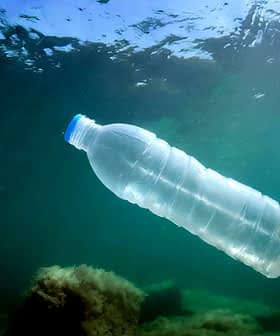The 'Greening' of Olive Oil Chemistry
Concerns about safety and the environment drive current efforts to switch to new methods that require either fewer chemicals, or that use chemicals that are less dangerous to handle and store.
The article discusses the use of Near Infrared (NIR) based methods of analysis as a more efficient and environmentally friendly alternative to traditional lab procedures, with a focus on olive oil production. The implementation of these methods is seen as a way to reduce hazardous exposure and chemical waste, leading to a greener and safer laboratory environment.
In a conversation over lunch with some olive oil producers, the topic of Near Infrared (NIR) based methods of analysis came up, as a substitute for standard “wet chemistry” lab procedures. Folks around the table expressed disbelief on NIR results. In their opinion, they were no substitutes for “wet bench” methods.
It was then up to me, a manager of a lab not using NIR, to counter-argue that NIR analytical procedures have value and benefits that must be recognized: expediency, coupled with user and environmental friendliness and lower costs.
Generally speaking, lab customers are unaware of the waste that chemistry laboratories generate, and the care required for handling and storing flammable and dangerous chemicals. This is precisely what food and oil processing plants must avoid. By implementing quality control with NIR-based methods which require no chemicals, these plants substantially reduce hazard exposure.
Concerns about safety and the environment drive current efforts to switch to new methods that require either fewer chemicals, or that use chemicals that are less dangerous to handle and store.
This “greening” of laboratory methods was recently discussed topic at the International Olive Council (IOC) chemists’ meeting in Madrid. Can older methods using unhealthy solvents like hexane be updated by using less hazardous solvents such as isooctane? (Note that chemical waste is still being generated, but the overall hazard decreases.)
There are numerous examples of greening in the laboratory and diagnostic world. In the ’90s, molecular biology labs replaced radioactive isotope-based techniques with chemiluminescent detection. Our dentists now use digital X‑rays that avoid solvents for film development. Likewise, our digital cameras bypass the need for chemicals in film processing.
Moreover, with the development of new micro assays, oil chemistry tests could be miniaturized to a scale where instead of hundreds of milliliters of solvents, a few will suffice. Let’s stay tuned as to how far the IOC will go on this green road. We will all benefit from their efforts.
Liliana Scarafia is a principal at Agbiolab, an independent laboratory helping olive growers, millers, and handlers to produce quality olive oil.









